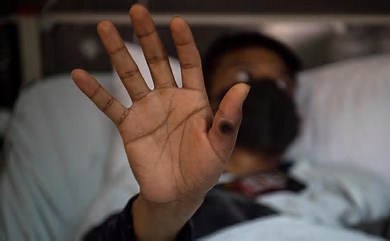In a significant step to combat mpox, the World Health Organization (WHO) has approved Bavarian Nordic’s vaccine, Jynneos, for use in Africa. This approval, called prequalification, enables United Nations agencies to purchase and distribute the vaccine to areas most affected by the virus.
The WHO is also reviewing another potential vaccine, LC16, developed by Japan’s KM Biologics, as part of its ongoing efforts.
What is Mpox?
Mpox belongs to the same virus family as smallpox, but its symptoms are milder. Early signs include fever, chills, and body aches, but in severe cases, lesions can appear on the face, chest, hands, and genitals. While it typically causes less serious illness than smallpox, it still poses a risk to certain populations, especially children.
How Will the Mpox Vaccine Be Administered?
The vaccine will be administered in two doses to adults aged 18 and older. In cases of outbreaks, it can also be given to infants, children, and adolescents under WHO authorization, despite not being officially licensed for those under 18. This decision will be made when the benefits of vaccination outweigh the potential risks.
WHO Calls for Urgent Action
WHO Director-General Tedros Adhanom Ghebreyesus emphasized the importance of this approval. “This first pre-qualification of a vaccine against mpox is an important step in our fight against the disease, both in the context of the current outbreaks in Africa, and in future,” he said.
In addition to vaccine approvals, WHO is calling for increased efforts to procure, donate, and distribute vaccines to countries in need. Gavi, the Vaccine Alliance, has allocated up to $500 million to help fund mpox vaccinations in low-income countries.
Mpox Impact on Africa
The Africa Centre for Disease Control and Prevention (Africa CDC) reported that children are most severely affected by mpox. Around 70% of cases in Congo involve children under the age of 15, and they account for 85% of the deaths. In the past week alone, Africa CDC reported 107 new deaths and 3,160 new cases.
In response, Africa CDC and WHO have launched a continental plan to combat the disease, with a focus on protecting vulnerable populations, particularly children.







